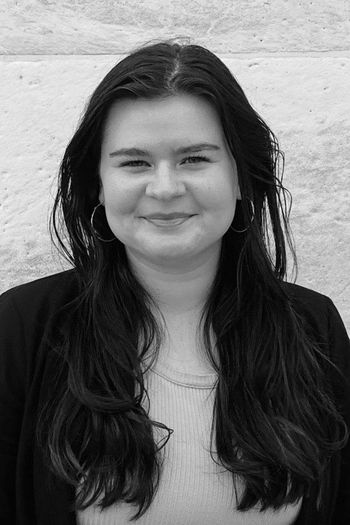Congressional campus free speech roundtable brings together representatives, free speech advocates
Members of Congress and representatives from several organizations met to discuss the importance of free speech on college campuses.
One representative said ‘that college campuses are like looking into a crystal ball five years in the future of the rest of the United States.’
In a recent press release, Rep. Greg Murphy discussed the Congressional Campus Free Speech Roundtable, an event at the U.S. Capitol addressing “First Amendment concerns in post-secondary education.”
Current college students joined organizations for the second annual roundtable. Participating organizations included Young America’s Foundation (YAF), the Foundation for Individual Rights and Expression (FIRE), current college students, and members of the Alumni Free Speech Alliance (AFSA).
[RELATED: SURVEY: Americans support 1A rights, but don’t know what they are]
Reps. Virginia Foxx, Kat Cammack, Burgess Owens, and Mariannette Miller-Meeks hosted the roundtable with Murphy.
At the beginning of the event, Murphy said that “it’s more important than ever that we make First Amendment protections a top priority.”
“The free exchange of ideas is the hallmark of a post-secondary education, and I look forward to working with my colleagues to protect the freedom of speech for generations of students to come,” he continued.
[RELATED: ‘Year of Reckoning’: Students host fake censorship campaign to promote 1A rights]
Owens spoke about “freedom of speech” as “a fundamental Constitutional right.”
“Open and intellectually stimulating dialogue in education is essential for fostering an environment where students can learn and thrive,” Owens said in his opening remarks.
Karalee Geis, YAF’s Capitol Hill Outreach Director, discussed the relationship between speech on college campuses and other institutions. “One of our most popular speakers with students, Michael Knowles, says that college campuses are like looking into a crystal ball five years in the future of the rest of the United States.”
Michael Knowles hosts a show for the Daily Wire.
“Things like banning books, burning flags, diversity, equity, and inclusion–that all started on college campuses and now seeped into our corporations and even into Congress,” she continued.
The office of Rep. Murphy told Campus Reform that “[t]here has certainly been a trickle-down effect that campus free speech violations have had on other institutions.”
”Students instilled with the idea that the First Amendment is a malleable concept or free speech is violence take that with them after they graduate,” Rep. Murphy’s office said. ”It is a dangerous system and that’s why we are working so diligently to re-establish college campuses as breeding grounds for thought and debate, rather than suppression.”
Greg Gonzalez, a Legislative Fellow with FIRE, described FIRE’s recently-expanded mission in his opening remarks. In June, FIRE announced its adoption of cases “beyond campus” and “a $10 million nationwide advertising campaign to promote a culture of free expression.”
Gonzalez spoke to Campus Reform about the value of free expression. “The First Amendment is fundamental to what makes our great American experiment work,” Gonzalez said. “Free speech is the best invention civilization has come up with for minority rights, scientific progress, artistic expression, social justice, peace, and each individual’s ability to live authentically.”
Adam Goldstein, FIRE’s Vice President of Research, told Campus Reform that “[f]reedom of expression used to be a universally accepted American value.”
”It’s still embraced by many; others view it with suspicion, use it as a political football, or even advocate against it as a tool of the powerful,” Goldstein said.
”Someone has to be a principled, nonpartisan, unapologetic and consistent defender of both the civil right and cultural value of free speech. We’ve done that on campus for more than two decades and that won’t change, but we can do more.”
In his opening remarks, Gonzalez referenced the recent release of FIRE’s annual college free speech rankings. “The data show that over 80 percent of students self-censor at least some of the time, with over 20 percent of students self-censoring often,” Gonzalez said.
“Over 20 percent of students said it is acceptable to use violence to stop a campus speech.”
Goldstein told Campus Reform that “[t]here are some bright spots” in the data. “One area where there has been slight improvement is the acceptability of disrupting speech,” Goldstein said.
”In 2022, 62% of students said that shouting down a speaker was acceptable to some degree; 37% said blocking others from attending was acceptable to some degree; and 20% said using violence to stop the speech was acceptable to some degree. While troubling, those are slight improvements from 2021, when the numbers were 66%, 40%, and 23%, respectively.”
[RELATED: TPUSA chapter event with Benny Johnson disrupted by a student’s violent outburst]
Campus Reform has reported on disruptions to speakers visiting college campuses. In November, the Cornell University President “promised that students who shut down Ann Coulter’s speech earlier [that] month would face consequences.”
During Coulter’s event, “students took turns interrupting Coulter’s speech with circus music, fart noises, and loud rants,” according to Campus Reform.
Another event hosted by the University of North Carolina (UNC) at Chapel Hill Federalist Society featured a speaker from the Alliance Defending Freedom.
Campus Reform shared a report from The James G. Martin Center for Academic Renewal: “He was shouted down, however, when protesters from an LGBT organization stormed the room and disrupted the event.”
Campus Reform contacted all relevant parties listed in the article for comment. This article will be updated accordingly.

